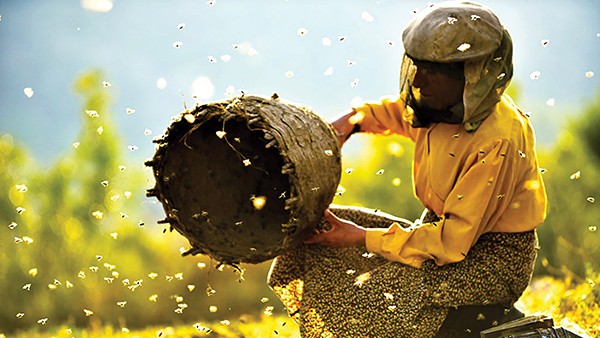The Oscars are not an international film festival. They’re very local.”
That’s what director Bong Joon Ho said to Vulture when he was asked about Parasite becoming the first Korean film to be nominated for Best Picture. It’s funny because it’s true. Hollywood has been called a “mill town,” and the Academy Awards are basically just an annual industry banquet with an incredible PR team. The awards are usually settled by voters who are either too busy to see enough films to make a meaningful decision or hopelessly out of touch with the zeitgeist or both. Controversy is guaranteed — this is a feature, not a bug.
Originally, the Academy of Motion Picture Arts and Sciences didn’t even consider films made outside of the United States. After giving out honorary awards for several years to films like Bicycle Thieves and Rashomon, the first Best Foreign Language Film was Federico Fellini’s La Strada in 1957.

One reason non-Hollywood films have always been an afterthought at the Oscars is because non-English films with subtitles have traditionally been a hard sell in America. But as the country becomes more diverse, that has been changing. These days, Malco Theaters regularly devotes screens to Bollywood movies. As I write this, the Telugu film Disco Raja is playing at the Majestic. The mainline Hollywood studios have become more and more dependent on foreign box office, which might be another incentive for the Academy to open up internationally. The subtitled Roma won Best Foreign Language Film and earned a Best Director award for Alfonso Cuarón in 2018, but a subtitled film has still never won Best Picture. Parasite, which I think is the best film from a pretty good year, has a chance to make history.
Another subtitled nominee has a chance to make history this year. Best Foreign Language Film got a long-overdue name change to Best International Feature Film, and Honeyland is nominated for both that honor and for Best Documentary. It’s no surprise the film has resonated. It’s a humane and fascinating story told with nuance and compassion for all of its subjects by directors Tamara Kotevska and Ljubomir Stefanov.
The project reportedly began life as a short film about efforts to preserve the area around the River Bregalnica in North Macedonia, until the directors met Hatidze Muratova. She is a beekeeper living with her 85-year-old mother in some of the roughest and most remote terrain in Europe. When we first meet her, Muratova is climbing along a treacherous mountain ridge to get to a rocky outcrop where a hive of bees has taken shelter. She takes a honeycomb and gently coaxes bees into her handmade, conical hive. She sings to the bees as she works, giving the impression that she’s not so much robbing the hive as she is recruiting workers.

Hatidze Muratova tends her hives in Honeyland.
Muratova’s world is timeless, idyllic, and lonely. She and her mother are the last two inhabitants of an abandoned village. Her beehives are tucked into nooks and crevices in crumbling stone walls that look like they could be 100 — or 1,000 — years old. Her golden rule is to never take more than half of the honey from any one hive, to ensure the bees have plenty to eat for themselves. Although she frequently works without protective equipment, we never see her get stung by a bee.
The natural rhythms of Muratova’s life are interrupted by the arrival of a family of itinerant farmers — Hussein Sam and his wife and seven children. They arrive in a caravan of cattle, trailers, and tractors, filling the silent hills with noise. At first, Muratova is happy to have new people to talk to. The Sams clearly have their hands full, and she’s got the farmer’s instinct for cooperation. But when Sam decides to take up beekeeping, conflict becomes inevitable. The contrast between his boxy, mass-produced hives and her handmade, organic hives becomes the film’s central visual metaphor. Muratova patiently tries to explain the sustainable, traditional beekeeping methods developed over thousands of years, but Sam has hungry mouths to feed and a pushy client who wants to move as much product as possible.
There are no good guys and bad guys here, just struggling people responding to incentives. Honeyland is cinéma vérité, which means there’s no voice-over and no talking head interviews. But there is more character and story in the film’s 87 minutes than in most $100 million blockbusters. As Bong Joon Ho said in his Golden Globe acceptance speech, “Once you overcome the one-inch-tall barrier of subtitles, you will be introduced to so many more amazing films.”